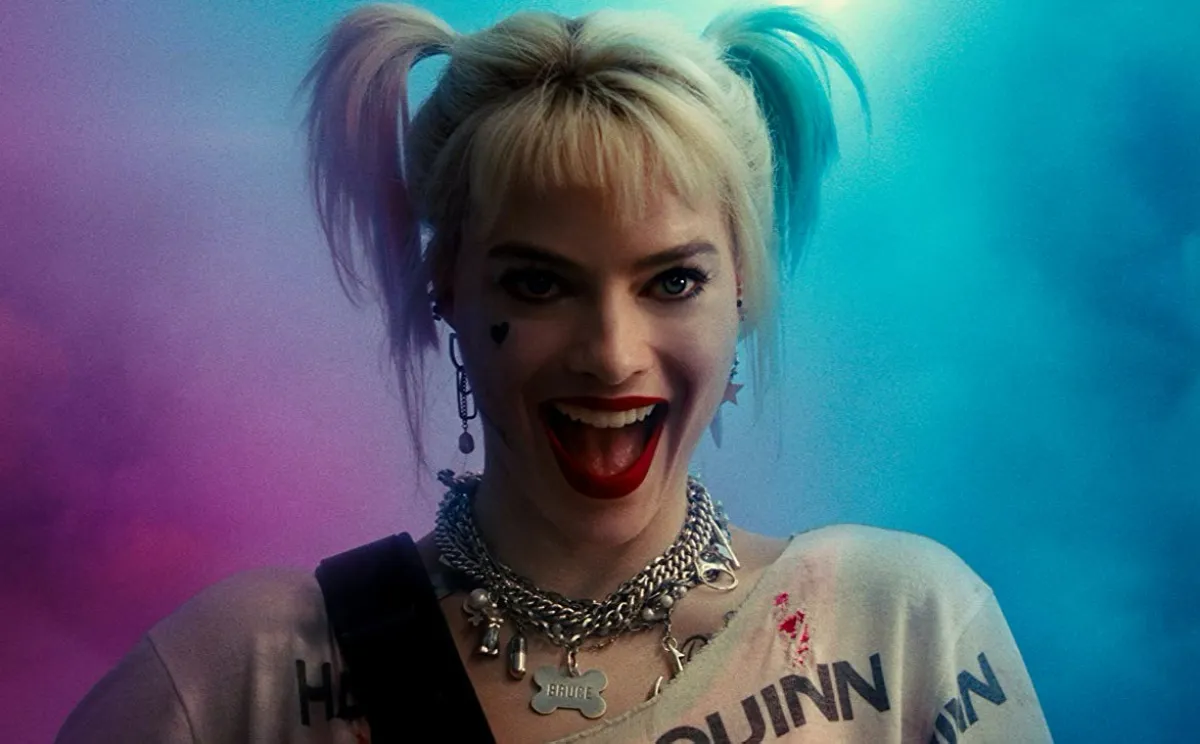Birds of Prey (And The Fantabulous Emancipation of One Harley Quinn) is no more … at least as a title. Or maybe it’s not? Movie theaters eager to tempt audiences into seats after the good but not great box office numbers of the R-Rated film have started marketing it as Harley Quinn: Birds of Prey for clarity but it points to some bigger problems—in the marketing of the film and in the way audiences are receiving it.
First of all, I’m coming at this as one of the only people here at The Mary Sue who hasn’t had a chance to see this movie. I can only talk about the marketing and what I can gather about the movie from that. And the more I think about it, my desire to see the film (and I do want to see it) comes more from the great reports about it from my colleagues and not the marketing. I just like comic movies and female heroes—if that’s what we can call Harley Quinn.
And, as we can tell by this “retitling” decisions, the marketing people in all levels think that it’s Margot Robbie’s Harley Quinn that we all want to see. All the marketing I’ve seen has been all Harley Quinn, to the extent that most of the commercials I saw for the movie had movie trailer voice guy growling “Harley Quinn IN Birds of Prey!” Sometimes he’d rattle off the subtitle but not always. So, this film has, from the get-go been all about Harley in the marketing—and even in its conception, since Harley wasn’t even an original member of the Birds of Prey.
Is that the disconnect? I’ve seen the comments on our Birds of Prey coverage and I know that there are comics fans not happy that our first proper Birds of Prey film doesn’t include Barbara Gordon as Oracle, and that other characters like Cassandra Cain have been changed. I can see how some people would be mad that this is a Harley movie and for others, they either aren’t into that or don’t get why it’s not just a Harley Quinn movie.
Aa for me, someone who doesn’t know much about the team, I definitely feel like the marketing on this film completely failed to highlight who the Birds were beyond Harley. And as beautiful and fun as the artwork for Birds of Prey was … it didn’t tell us who all these people with Harley were. I still can’t tell you who this Cassandra Cain is or why she’s in this movie. Same for Renee Montoya.
— Birds of Prey (@birdsofpreywb) September 30, 2019
Here’s what the marketing for Birds of Prey told me: Harley Quinn is in a movie with women fighting men—this is enough to sell me. But I can imagine that the general audience might want to know who Huntress or Black Canary are, and what they’re doing there. The look of this movie—dark and colorful yet gritty with nary a mask or super-suit in sight—could be hard for a general audience. Again, I’m not saying that choice is bad; it’s is a fine choice, but harder to sell if this is being marketed as a film people should see because they like comic books.
The DC movies are a hard sell when they’re introducing or focusing on new characters and also doing that in a new way. Unlike Marvel, which can get away with making a tentpole out of a weird, obscure title like Guardians of the Galaxy because they built up trust in their audience by making good movies, DC doesn’t have that foundation of trust and consistent films. Birds of Prey, to me, looks great but … it’s a sort-of sequel to Suicide Squad, which is infamously horrible. Even DC and Marvel-adjacent movies that focused on villains or more obscure characters, like Shazam! and Venom were still clearly big-budget comic movies and this clearly wasn’t.
And then, of course, there’s probably some sexism at work here, but I don’t think that’s the only factor. As with everything, it’s a combination of things. Birds of Brey is not a flop. It opened number one and is doing great internationally, and audiences and critics both really like it. This was a smaller film that was doing a very specific thing and it succeeded. It might just be that the marketing for it might not be connected or communicated well with the masses.
(via: Nerdist)
Want more stories like this? Become a subscriber and support the site!
—The Mary Sue has a strict comment policy that forbids, but is not limited to, personal insults toward anyone, hate speech, and trolling.—








Published: Feb 11, 2020 04:26 pm